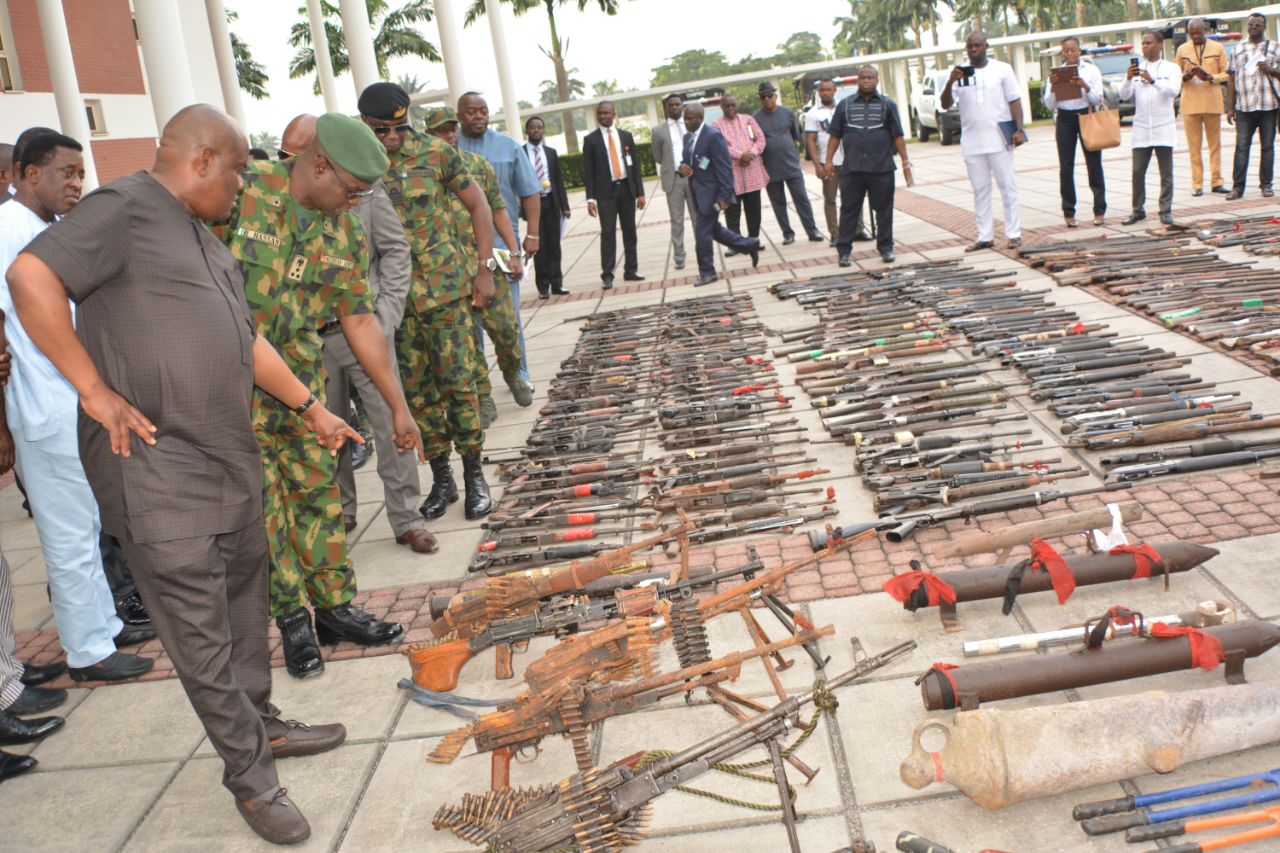‘Amnesty programme has not delivered desired benefits after 11 years’
The Interim Administrator of the Presidential Amnesty Programme, retired Col. Milland Dixon Dokio, says the scheme has been running for 11 years without the desired benefits delivered to the ex-agitators in the Niger Delta region. Dokio, who said this on Friday after a visit to President Muhammadu Buhari at the Presidential Villa, Abuja, disclosed that […]

The Interim Administrator of the Presidential Amnesty Programme, retired Col. Milland Dixon Dokio, says the scheme has been running for 11 years without the desired benefits delivered to the ex-agitators in the Niger Delta region.
Dokio, who said this on Friday after a visit to President Muhammadu Buhari at the Presidential Villa, Abuja, disclosed that the database of the ex-agitators was rather “dishonestly corrupted and several
contracts awarded in total disregard of need and procurement processes.”
- Amnesty Programme gulped N243bn in 5 years, most expensive globally – Report
- Ndume faults amnesty for repentant BH insurgents
As a result of this, he said the programme is currently owing contractors over N71.4 billion.
This development, he added, informed President Buhari’s decision to overhaul the Programme aimed at ensuring that the dividends of the Amnesty Programme reached its original target beneficiaries.
He said reports had shown that not much progress had been recorded in some aspects of the demobilization and reintegration components of the programme.
Dokio, therefore, said that the need to focus on education and vocational training in ways that the benefits were channeled through a transparent, accountable, corrupt-free and institutionalized process was imperative.
He said the programme as currently structured was not sustainable and could not deliver the desired long-term benefit to the region and the country.
The coordinator said the ultimate success of the amnesty programme lied in its ability to move ex-agitators from their previous lifestyles to sustainable livelihoods as peaceful members of their communities and net contributors to the economy.
He said this was the reason why the programme was designed to address the development and security issues in the region.
Dokio expressed his vision to refocus the Amnesty Programme to its original mandate of development and security of the Niger Delta region.
The coordinator, while going down memory lane, said: “Following its inception on 25 June 2009 and initial success in stabilizing the Niger Delta Region, there have been calls to review the Presidential Amnesty Programme to ensure that it delivers sustainable peace and human development.
“The President is desirous of delivering the benefits of the Programme through a transparent process that ensures that all resources are effectively utilized.
“The lessons we are learning points to a systemic problem with the programme structure that permits abuse of trust and processes.
“The original plan for the Amnesty Programme by the administration of the late President, H. E. Umaru Musa Yar’adua was to last for only years within which to disarm in a period of 3 months, demobilise and reintegrate the ex-militants into civil society within the remaining 2 years and 9 months.
“However, immediately after the disarmament phase, challenges including endemic corruption cropped in and derailed the programme. Lack of enough funds and corruption were blamed for impeding the
effective operationalization of the programme.
“In view of the above, on assumption of Office in 2015 H.E. President Muhammadu Buhari graciously reviewed upwards the annual financial allocation of the programme from N35b to N65b to ensure that the ex-agitators were properly trained and reintegrated into the civil society.”
